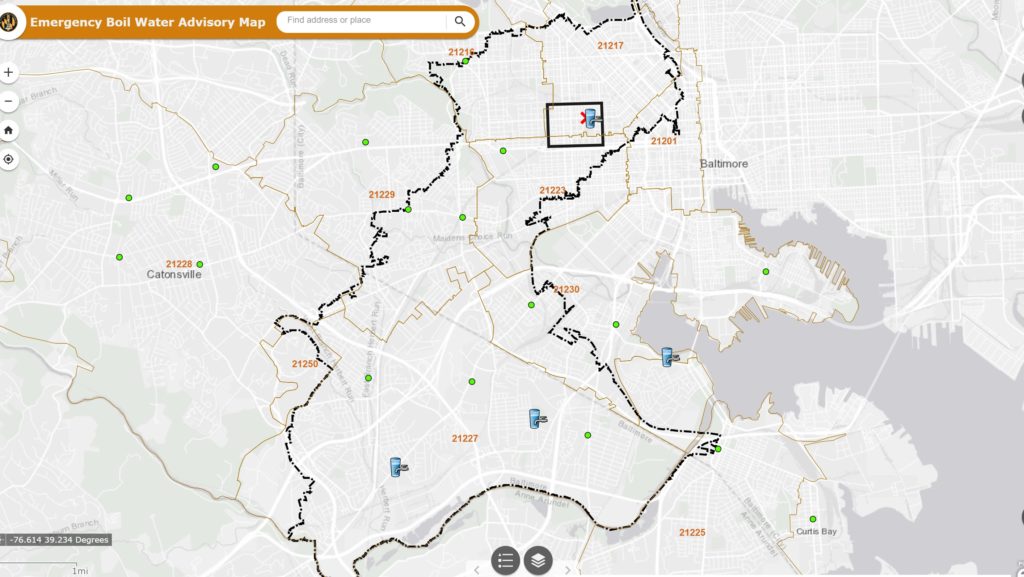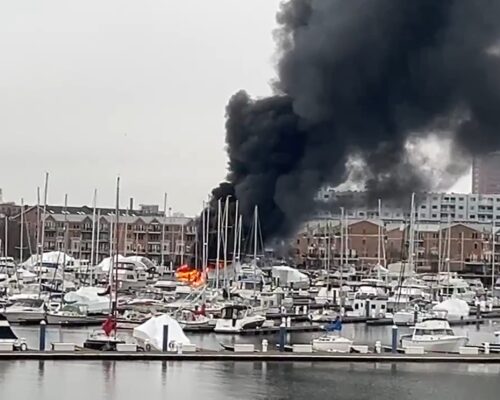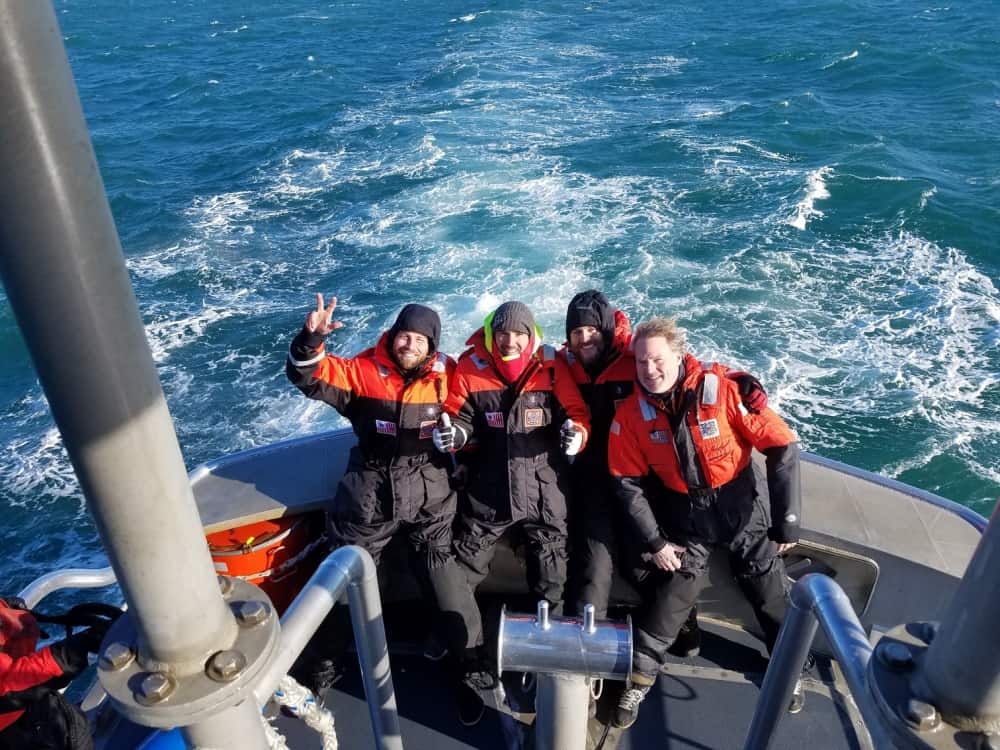A 56-block area of West Baltimore is under a “boil water advisory” after the city’s Department of Public Works (DPW) detected E.coli when sampling water sources last Friday.
The E.coli- contaminated water was initially found in the Sandtown and Harlem Park communities of West Baltimore at police and fire department facilities.
After the positive test results, Baltimore DPW begam “flushing the system continuously and performing leak detection, valve assessments and increasing the chlorination in the area.”
DPW issued an advisory instructing residents to boil water for drinking (for both people and pets), teeth brushing, making ice, preparing baby formula, and washing produce. Tap water should be used for flushing toilets only, the agency told residents.
E.coli is a bacteria whose presence may indicate the presence of animal or human feces in the water source. Some strains can cause illness involving symptoms like severe stomach cramps, bloody diarrhea and vomiting. No illness has been reported so far in connection with this contamination.
Portions of at least seven zip codes are under the advisory, including areas along portions of the Patapsco River and its Middle Branch. Some 1,500 households and facilities are impacted. DPW’s interactive map showing the affected area is available here. The area inside the black dashed line is where neighbors are advised not to ingest the water due to possible E.coli.
DPW is sampling and surveying the communities where the original sampling was done.
The agency still doesn’t know the source of the E.coli contamination, but are investigating by sampling other locations and identifying construction projects in the area. Public works officials do say what they think did not cause the contamination. DPW says they’re “confident that the positive test results were not a result of the performance of the water treatment plants, which are operating up to code…This is not associated with wastewater treatment.”
DPW says in addition to notifying residents, it engaged with the Baltimore fire and police departments, the Office of Emergency Management and the Maryland Department of the Environment.
Since Monday, DPW has been distributing water from three locations in the affected area. A “water buffalo” tank on wheels has been set up, with residents urged to bring their own containers to fill. Neighbors are limited to three gallons of water per household.
We’ll continue to update this story when the source of the E.coli is found or the situation is resolved.
-Meg Walburn Viviano




